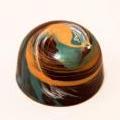-
Welcome to the eG Forums, a service of the eGullet Society for Culinary Arts & Letters. The Society is a 501(c)3 not-for-profit organization dedicated to the advancement of the culinary arts. These advertising-free forums are provided free of charge through donations from Society members. Anyone may read the forums, but to post you must create a free account.
Basting proteins in restaurants
-
Similar Content
-
- 9 replies
- 362 views
-
- 33 replies
- 7,232 views
-
- 46 replies
- 14,286 views
-
- 312 replies
- 33,667 views
-
- 2 replies
- 398 views
-
-
Recently Browsing 0 members
- No registered users viewing this page.




Recommended Posts